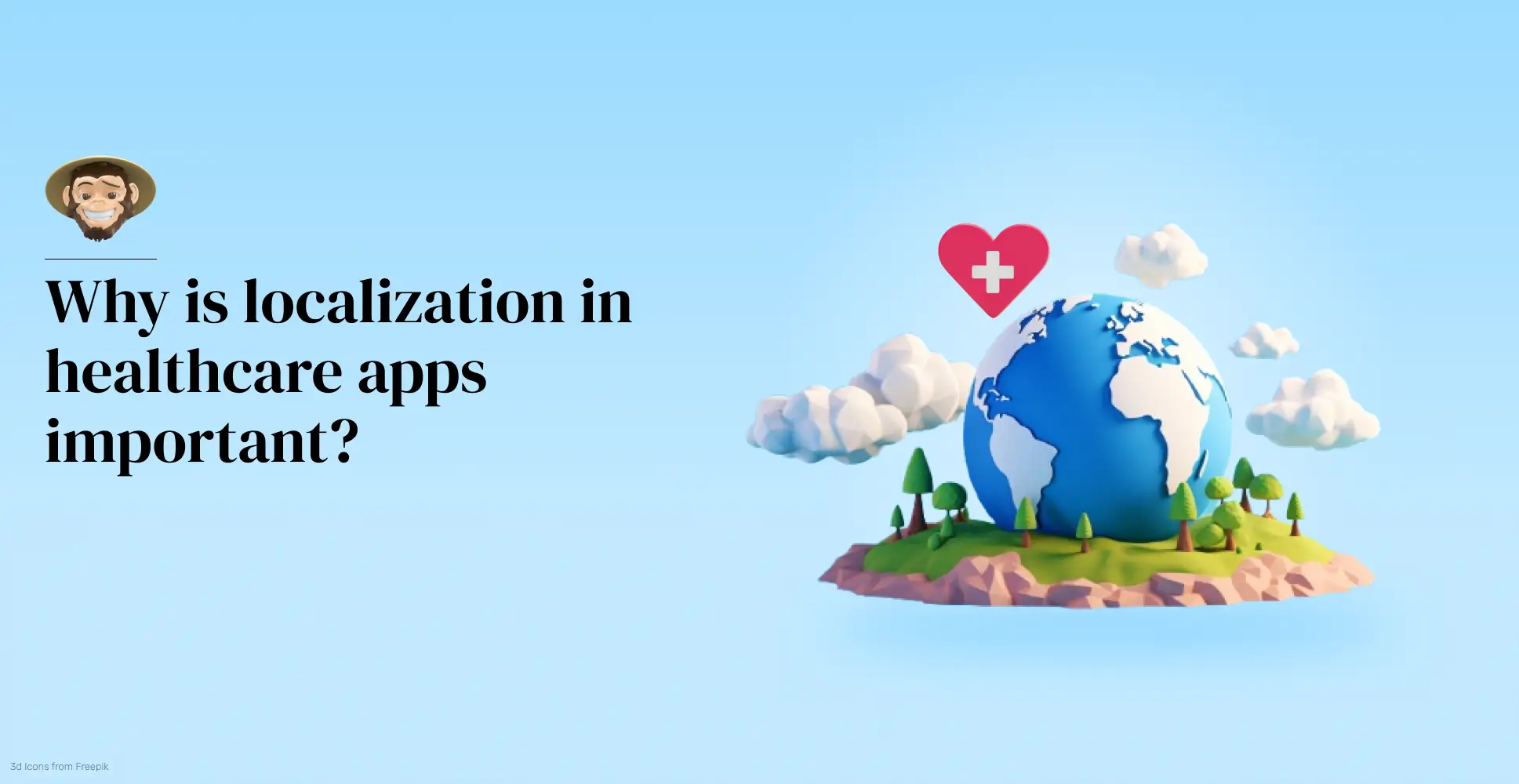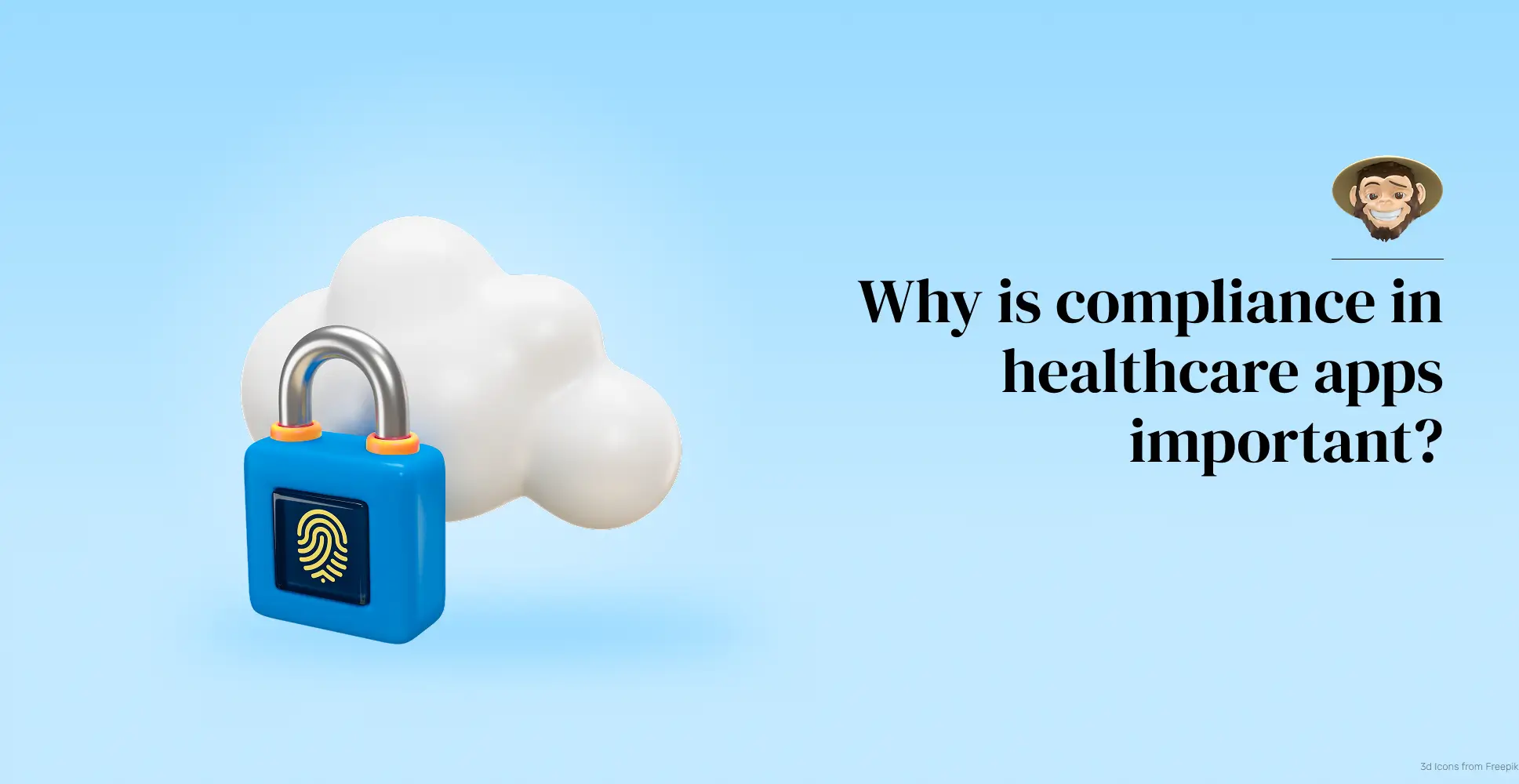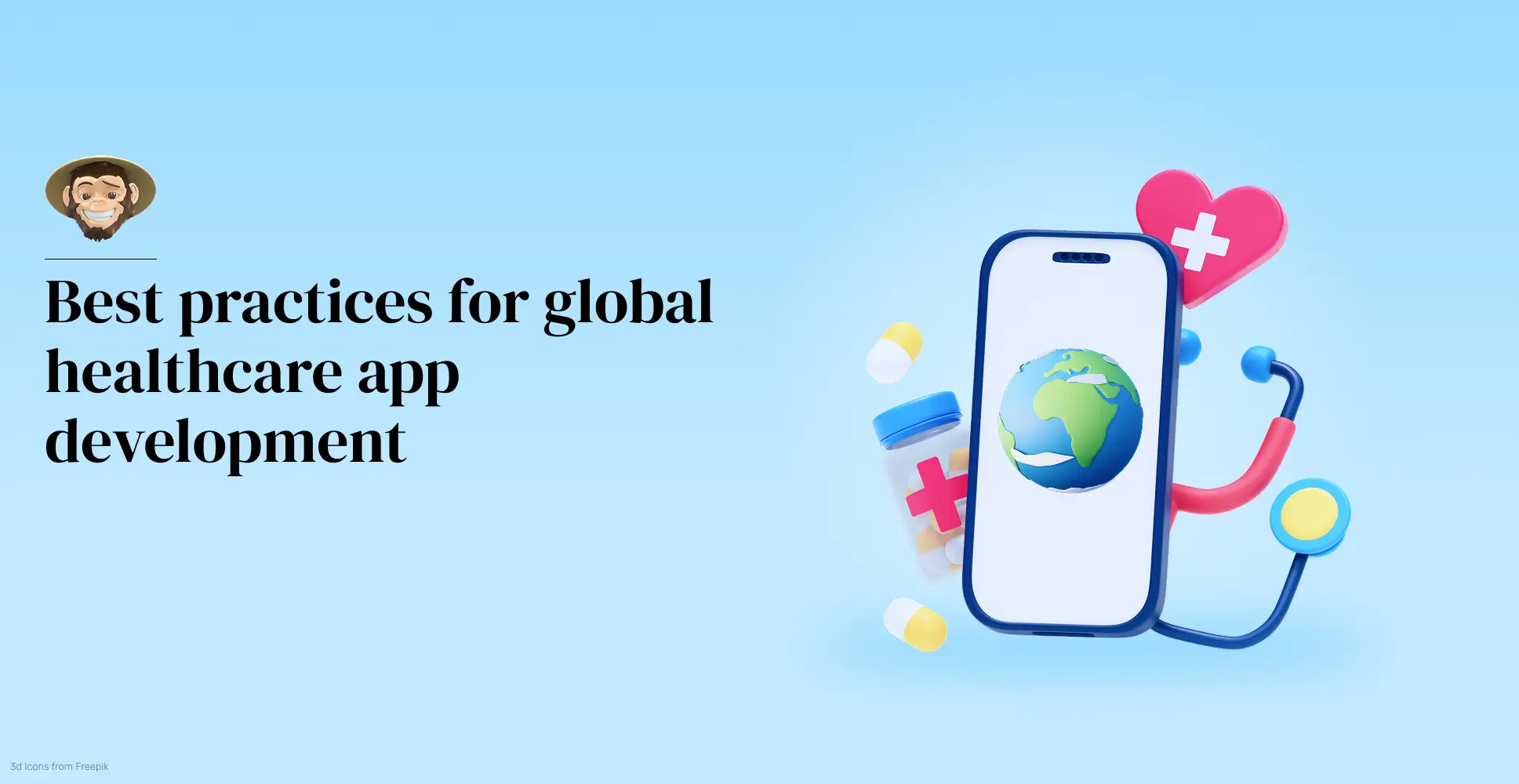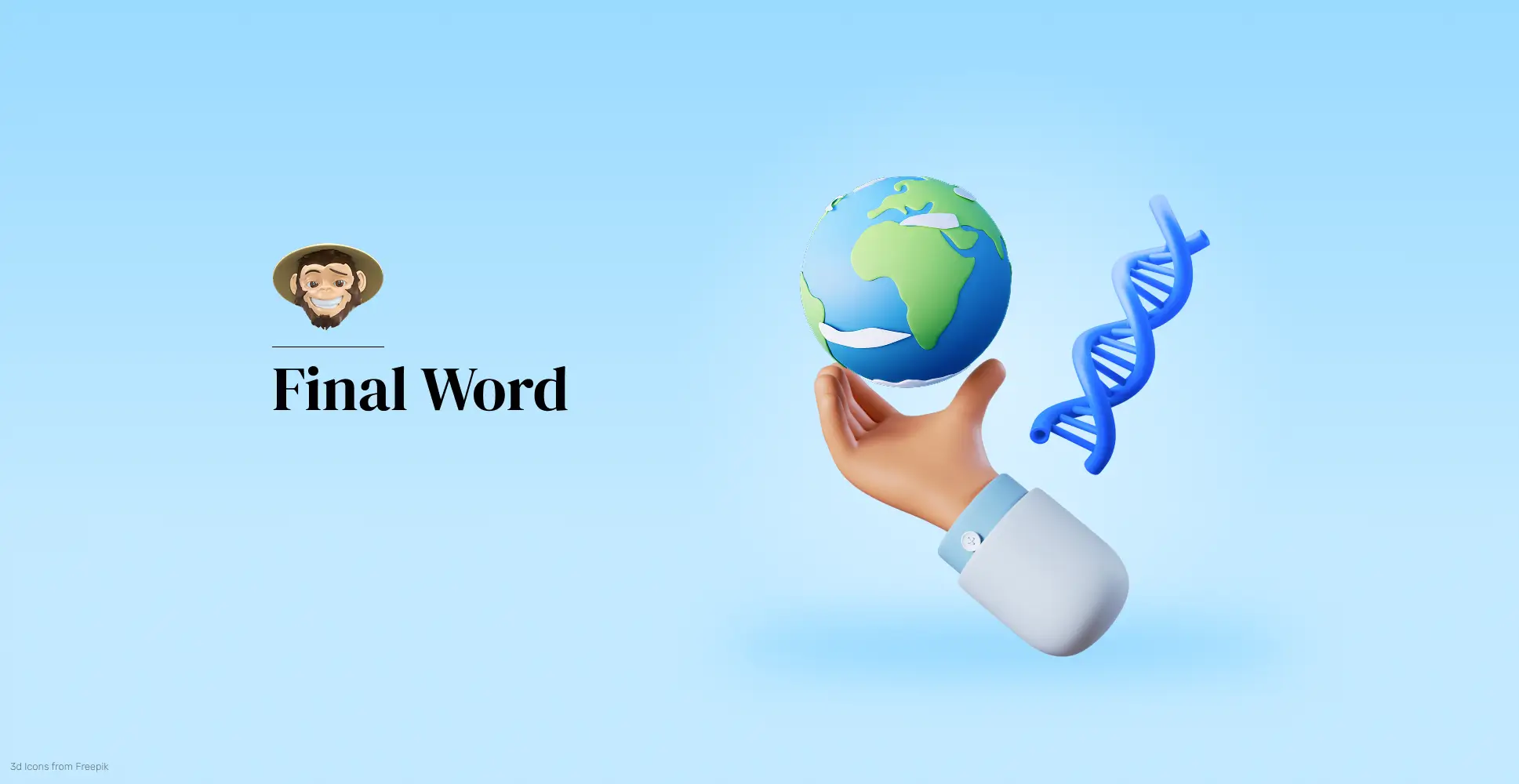Developing a healthcare mobile app for a global audience is critical to meeting user demands for digital health solutions, but it comes with unique challenges.
In today’s interconnected world, the word “global” is quickly becoming prevalent when discussing offering various goods and services to broader and more diverse audiences. Countless brands from different industries are starting to step out of their comfort zones and build business strategies that allow them to reach even more consumers, regardless of whether they live on opposite sides of the world. Even the healthcare app development industry, driven by technological advancements and increasing demand for digital health solutions, is finding ways to evolve to meet the diverse needs of a global audience. Thanks to the widespread use of mobile devices and an increasing reliance on digital health applications, these solutions now have an even more considerable potential to reach users across different countries and regions.
For healthcare app developers and companies looking to build digital health apps for a global audience, two critical factors come into play: localization and compliance. These apps must be carefully localized to resonate with users worldwide and adhere to varying compliance standards to ensure their effectiveness on a global scale. In this article, we will explore the key considerations behind meeting these aspects, providing insights into how healthcare app developers can navigate these complexities and create applications that meet the diverse needs of a global audience while adhering to local laws and regulations.

Why is localization in healthcare apps important?
Localization is a critical factor in the success of healthcare apps that aim to function on a global scale. It goes far beyond translating the app’s text to different languages or encompassing cultural, regulatory, and practical adaptations. What makes a healthcare app truly accessible and practical for users in other regions is that its content, functionality, and design align with the cultural norms, language, and expectations of the target audience. Here’s why that matters:
Medical terminology: Different regions often use varied medical terms for the same conditions or treatments. Failure to properly localize can lead to misinterpretation of these terms, which can be fatal in some cases, such as dosing. Proper localization enhances medical term understanding and reduces these risks.
Cultural context: Health practices and languages vary widely across cultures, and localizing content can significantly increase users’ understanding of terminology and practices and promote trust and engagement.
Improved patient safety: Localization ensures that critical elements such as dosage instructions, symptom descriptions, side effect warnings, and contraindications are always in the user’s native language, which can be life-saving.
Local healthcare system integration: Localization also involves integrating the healthcare mobile app with region-specific electronic health record systems (EHR), adapting to local healthcare delivery models, considering the different measurement systems (metric vs. imperial) and date/time formats of each area, and keeping in mind the varying insurance and payment systems in various countries.

Why is compliance in healthcare apps important?
Regardless of where they’re used, all healthcare apps must adhere to a complex web of regulations that vary by country and region. Since healthcare data is highly sensitive and different areas have stringent rules governing its handling and storage, compliance with these regulations is not just a legal requirement; it’s essential for building trust with users and healthcare providers. Here’s why compliance is critical for healthcare app development:
Data protection and privacy: The responsibility of safeguarding the sensitive medical data that flows through healthcare mobile apps lies with the developers. Regulatory bodies like the General Data Protection Regulation (GDPR) in Europe and the Health Insurance Portability and Accountability Act (HIPAA) in the United States dictate how user health information should be collected, stored, and processed. Healthcare app developers must implement robust security measures to comply with these regulations.
Medical device regulations: In some areas, healthcare apps can be classified as medical devices, meaning they need additional compliance with specific regulatory frameworks like the U.S. Food and Drug Administration (FDA) guidelines, the European Union Medical Device Regulation (MDR), or other national standards.
Accessibility standards: In healthcare app development, it’s crucial to ensure that all users, including those with varying disabilities, can access the app. This means adhering to accessibility standards like the Web Content Accessibility Guidelines (WCAG).

Best practices for global healthcare app development
Healthcare app development for global audiences involves several layers of complexity that go well beyond standard app development. To build a robust global healthcare mobile app, healthcare app developers must adhere to a set of best practices that cater to the diverse needs of a worldwide user base. Here are some of them.
1. Develop and design for global user needs: Your starting point must be a deep understanding of your target audience’s specific needs, preferences, and behaviors in different regions. This is not just a step but a crucial foundation of your app’s development. You need to study the different healthcare trends, patient behaviors, and medical practices of local markets and design your app with a user-centric approach, considering these diverse cultural, linguistic, and social factors. Also, customize your healthcare app’s UI/UX design to cater to different local preferences and make it intuitive, easy to use, and accessible to users with varying levels of digital literacy.
2. Implement localization management systems: To ensure that your healthcare app supports multiple languages, you must implement localization platforms to translate medical terminology efficiently and ensure the app’s content is user-friendly, accurate, and, more importantly, culturally appropriate. However meaningful language translation can be, localizing your healthcare app’s content to match regional customs, health concerns, medical practices, and cultural norms is critical for your product’s user experience.
3. Research and meet global regulatory requirements: As you know, different countries have different regulations governing healthcare applications. Meeting these regulations is non-negotiable, especially concerning data privacy and security, so it’s critical to familiarize yourself with them to ensure your app is compliant and avoid legal consequences.
4. Optimize your app’s performance for various devices: Another critical of healthcare app development for a global audience is to design for cross-platform compatibility to ensure that your app executes seamlessly on a wide range of devices, operating systems, screen sizes, resolutions, and device capabilities. Also, implement responsive design techniques to ensure your application can adapt to different environments and user contexts to provide a seamless user experience.

Final word
It is undeniable that healthcare app development for a global audience requires app developers to focus on effective localization and rigorous compliance so that they can create apps that are widely accessible and trustworthy. The needs of worldwide users are diverse, and meeting those needs requires developers to fully understand the cultural, linguistic, and regulatory landscape of the different regions so they can build healthcare solutions that are culturally relevant and sensitive, add value to users’ lives, and are technically sound and legally compliant. This focus on localization and compliance enhances user trust and engagement while paving the way for better healthcare outcomes worldwide.
At Foonkie Monkey, we’re always at the forefront of modern healthcare app development and build solutions that cater to universal user needs. So, if you have questions regarding global healthcare app development or want an experienced team like ours to work on your new app, get in touch!
